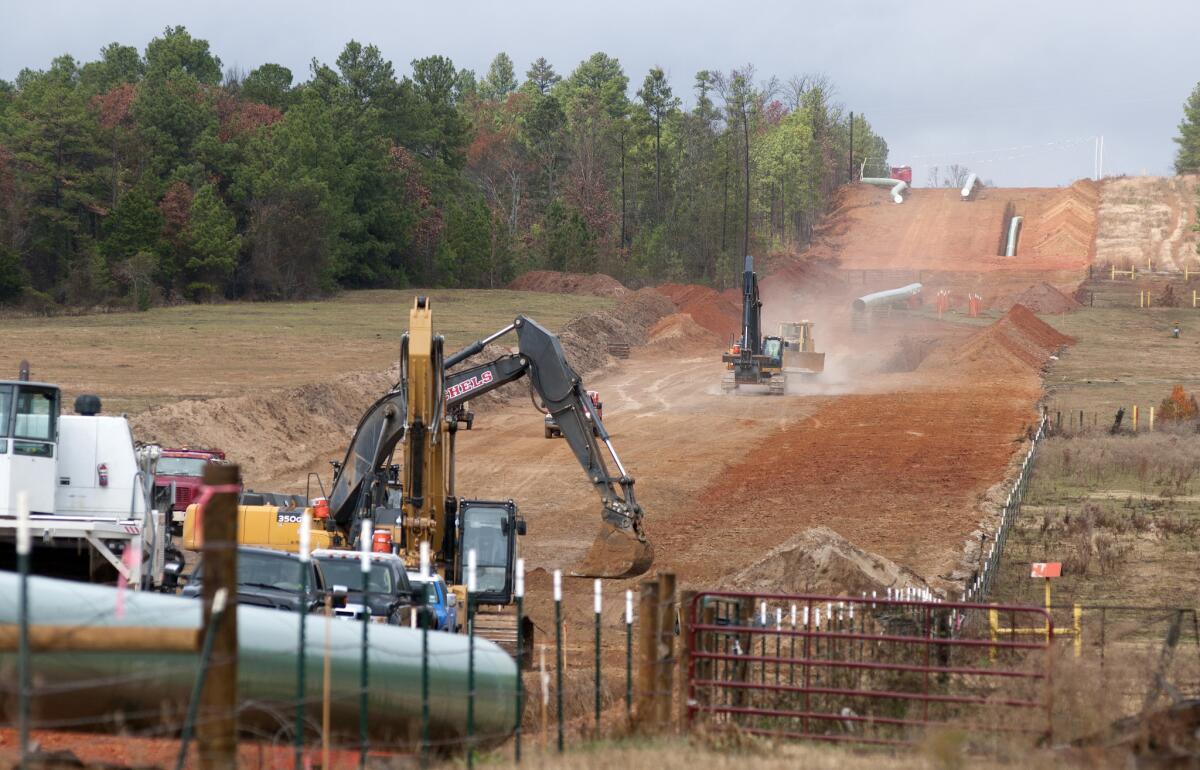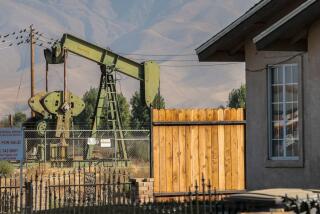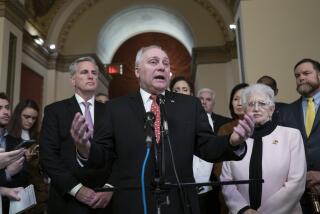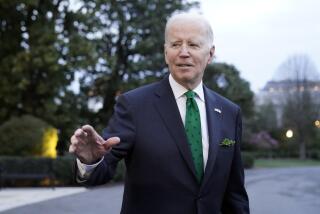Obama, Congress set to clash over Keystone XL pipeline

Democrats’ efforts to press a vote on the controversial Keystone XL pipeline appear to be setting up the first legislative postelection showdown between the White House and Congress.
In the days since his party suffered heavy losses in the midterm election, President Obama has doubled down on his pledge to use his executive powers to act, saying he interpreted the results as voters wanting Washington to emerge from gridlock rather than sending a damning message to Democrats.
He struck a landmark deal on climate change with his Chinese counterpart that the GOP immediately denounced, and he repeated his intent to change the immigration system through executive action by year’s end, bringing accusations of overreach from Republicans.
Now, his party’s Senate leaders have authorized a vote for Tuesday on a bill introduced by Sen. Mary L. Landrieu (D-La.) to approve the long-delayed Keystone project, with an eye toward boosting her chances of retaining her seat in her state’s Senate runoff election next month. A similar bill sponsored in the House by Landrieu’s opponent, Rep. Bill Cassidy, passed easily in a vote Friday, as have previous House proposals on the pipeline.
The fight is shaping up to be another clash over executive authority, a bellwether of more such actions expected over the next two years. The White House has indicated that it will not budge from its long-standing position that the president will make the final decision on the pipeline that would carry oil from Canada to the Gulf Coast. For decades the executive branch has had the final say on projects that cross U.S. borders and require so-called presidential permits. The administration has put a review of the pipeline on hold while it awaits the results of a lawsuit in Nebraska over the pipeline’s route.
Obama has said he would consider granting the permit only after those steps are completed. “I’ve been clear in the past. … My position hasn’t changed, that this is a process that is supposed to be followed,” he said at a news conference Friday in Myanmar, asking Congress not to “short-circuit” the protracted review process.
Earlier in the week, White House spokesman Josh Earnest went further: “In evaluating those earlier proposals, we have indicated that the president’s senior advisors at the White House would recommend that he veto legislation like that.”
The $5.3-billion Keystone XL would carry 830,000 barrels of crude oil daily from Alberta to Steele City, Neb., where it would connect with a southern leg, already completed, to Gulf Coast refineries. Obama said he would approve the project only if it did not significantly worsen carbon dioxide pollution that drives global warming. A State Department environmental review concluded that the project would probably have little impact on carbon emissions, but some peer-reviewed research has countered that the State Department estimates are too low.
The administration suspended consideration of Keystone XL in April, after a Nebraska judge invalidated the pipeline’s route through the state. The state Supreme Court is expected to issue a decision by the end of the year. If the court upholds the invalidation of the route, the federal environmental review process, which could take years, might have to begin again.
The Cassidy and Landrieu bills, which are nearly identical, would circumvent the reviews and direct the federal government to issue a permit to build the pipeline. The Landrieu bill is expected to pass.
Pushing the bill Wednesday, Landrieu said, “I didn’t come here to see my name in lights. I came here to create jobs for my state and for this country, and I believe I’ve done an excellent job in the 18 years I’ve been here, through very difficult circumstances.”
Democrats, who still control the Senate, have allowed the bill to proceed to give her “a big feather in her cap when she goes home to campaign” for the runoff, said a Democratic Senate aide who spoke on condition of anonymity because of the sensitivities surrounding the bill.
Landrieu led Cassidy, 42% to 41%, in last week’s general election, and tea party candidate Rob Maness got 14% of the vote. The runoff is Dec. 6.
Landing an oil bill on the president’s desk is “a win either way for Landrieu,” the aide and other analysts said. If Obama signs the bill, Landrieu can claim credit, and if he vetoes it, she can try to boost her stature as an opponent of his policies.
“The president doesn’t have any more elections to win, and he has no other excuse for standing in the way,” House Speaker John A. Boehner of Ohio said Friday.
The White House’s recent comments and Obama’s track record have given pipeline opponents hope that he will veto the Keystone XL bill. “He’s stood his ground many times and stood up to congressional overreach and attempts to undo executive authority in the past,” said Franz A. Matzner, a lobbyist for the Natural Resources Defense Council. “So we have strong expectations that he will do the right thing and veto this bill.”
Congress does not have the votes to override a veto. If the president vetoes the lame-duck bill, the Republicans will probably introduce their own legislation after they take control of Congress in January. Keystone XL could ping-pong between a Congress that repeatedly passes it and a president who vetoes it, until someone relents, analysts said.
Rejection of the legislation is not the same as rejecting the pipeline. Rather, it keeps the decision in presidential hands. In his most recent comments, Obama disputed arguments by the pipeline’s backers that Keystone XL would create many jobs and drive down gasoline prices.
In Myanmar, Obama said he had “to constantly push back against this idea that somehow the Keystone pipeline is either this massive jobs bill for the United States or is somehow lowering gas prices.”
He added: “It is providing the ability of Canada to pump their oil, send it through our land down to the gulf, where it will be sold to everyone else. It doesn’t have an impact on U.S. gas prices.”
More to Read
Get the L.A. Times Politics newsletter
Deeply reported insights into legislation, politics and policy from Sacramento, Washington and beyond. In your inbox three times per week.
You may occasionally receive promotional content from the Los Angeles Times.







